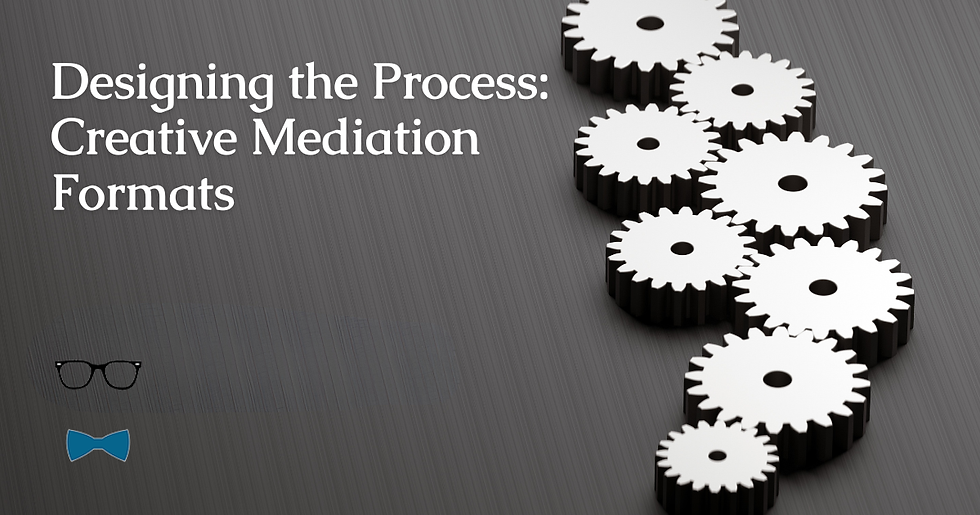The Similarities Between Thanksgiving & Mediation
- Cooper Shattuck

- Nov 22, 2023
- 2 min read
Updated: Jan 13, 2025

We find ourselves rolling very quickly into the holiday season. First up? Thanksgiving. Though initiated by the Puritan settlers, today’s holiday is a unique non-religious (for the most part) American holiday. Regardless of your religious beliefs or feelings about nationalism, it is a time to focus on things for which we are thankful or for which we have gratitude – those things we should appreciate. Those sentiments are a big part of a negotiated settlement obtained through mediation. How so?
The parties must appreciate the roles of the mediator.
The mediator facilitates the negotiations; thus, one role (some would argue the only role) is that of facilitator. A mediator does this with active listening, brainstorming potential resolutions, helping the parties to identify their goals and interests, and assisting the parties in effectively communicating those interests to the other side or other parties. A mediator also wears an evaluative hat. Here is a third party who has learned about the case or dispute and can give unbiased feedback. You can gain more appreciation for the mediator by taking advantage of the unique position.
The mediator must appreciate the parties' wants, desires, needs, and interests.
After all, it is the parties' dispute; it is their case, and thus it must be their settlement. Regardless of how the mediator or someone else may value the case or dispute, the mediator must be tuned into the parties’ evaluations, needs, desires, interests, etc. Everyone has different risk tolerances. Other factors may affect a party’s interests and, thus, their evaluation of a potential settlement. As a mediator, I try to ferret out those interests to understand what a party wants or needs to accomplish. Mediations allow us to be creative with a settlement. But that requires listening and then appreciating a party’s perspective.
The parties must also appreciate the other side’s perspective.
You don’t have to agree or find it reasonable, but you must appreciate it. This is very hard for some people to do. But once they can see another perspective on a potential resolution, the creative wheels turn, and a compromise settlement may come into focus.
The parties must also appreciate the risks they take if they do not resolve their dispute by agreement.
Are they willing to take the risk? What could happen? What’s their worst-case scenario? What’s their best?



Comments